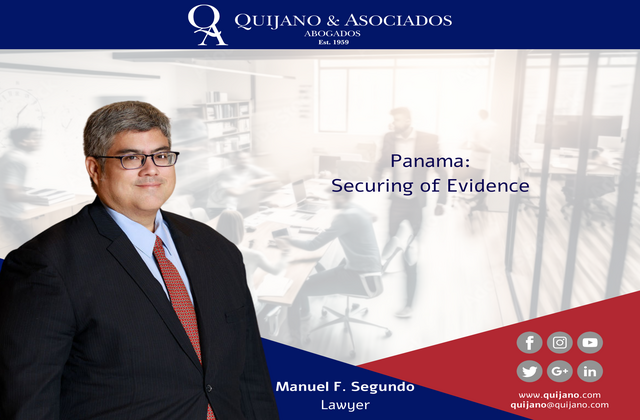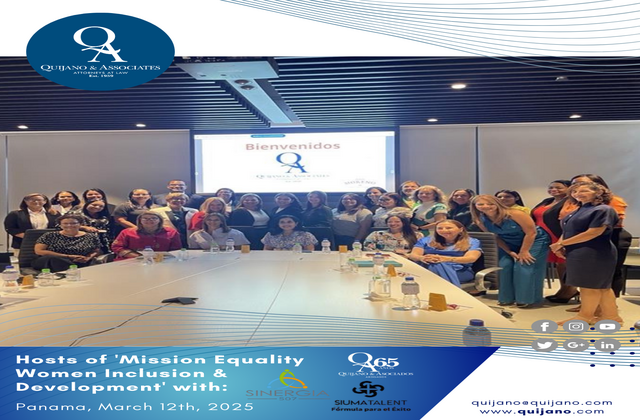Securing of Evidence

The securing of evidence has been conceived in our Code of Procedure as a precautionary measure, by granting the parties the possibility of obtaining evidence through an anticipated mechanism, which in the end becomes an exception to the rule contained in article 792 of the Judicial Code, which states that the evidence to be appreciated in a proceeding must be requested to be practiced or incorporated to the process within the terms indicated.
We say the above because the securing of evidence as such is conceived within the title of evidence, when we are really facing an anticipated securing measure, which only proceeds when any person has the intention of suing or the fear that he may be sued, and there is always a justified fear that for some reason a means of evidence may be missing, difficult or impracticable to obtain at the appropriate time.
The judge may be approached with the intention of collaborating in aspects that will contribute to the preparation of a future proceeding, this set of judicial activities, where the judge allows in advance to inspect the thing in dispute or various evidentiary elements, is called Pre-Judicial Discovery Proceeding.
It is undoubtedly that the discovery proceeding have a precautionary justification of prior information, therefore, it is considered by many lawyers and judges as a precautionary measure.
In this sense, article 815 of the Judicial Code states: “When a person intends to sue or fears to be sued and there is a justified fear that he may eventually lack a means of proof or that it may be difficult or impracticable to obtain it at the appropriate time, he may request the judge to immediately perform any of the following tests: …”, from the above we can infer the following connotations:
Many times this insurance mechanism arises as a result of the previous relationships created between persons, meaning natural persons and/or legal entities, that in view of the possible need to sue for the protection of their rights require evidentiary support to the facts of their claim and therefore it has been established that both the plaintiff or whoever may appear as defendant must go to the corresponding jurisdictional channel, which would eventually be competent to hear the main case, where the evidence collected will be provided, so that it is that authority or court which obliges the virtual defendant or a third party to carry out the examination, inspection or files, reconstruction and even depositions that allow the insurer to evaluate the probability of success before an eventual action.
Since the securing of evidence to a certain extent implies an intrusion to documents or files of third parties, it requires a theoretical justification that convinces the judge that the measure is appropriate or justifiable for its adoption so that it can be decreed, it should be noted that precisely the party argues that it may lack that specific means of evidence.
Therefore, in most cases it is a matter of preserving sources of evidence that are not of a personal nature, since although the legal norm that regulates the matter grants a scope of securing evidence with subjective characteristics -prejudicial testimonies, acknowledgments of signatures, declarations, among others- those directed to inspect documents, movable and immovable property, or things, with the intervention of experts or experts in the subject matter of the inspection are predominant.
Article 815 of the Judicial Code lists a group of specific evidence that can be secured in advance and among them we have:
a. discovery proceeding
b. prejudicial testimony
c. judicial inspection
d. expert opinions
e. reconstruction of events
f. signature recognition
g. subpoenas to the alleged opposing party to acknowledge a document subscribed by him or by a third party
h. deposition of a party
i. report proceedings
j. public or private documents of any kind.
The request for securing evidence, as indicated in article 531 numeral 3 of the Judicial Code, must be made in writing, indicating the real or presumptive parties (plaintiff and defendant); the measure to be requested, specifying the modality that is sought; the purpose for which the diligence is requested; the amount of the proceeding to be accessed.
In the same vein, according to article 816 of the Judicial Code, the request must be formulated before the competent judge for the lawsuit. As indicated, in the case of the request for the measure formulated before the beginning of the proceeding, according to the law, the court that is considered competent for the main matter, that is to say, the lawsuit that will be filed later on, will be competent.
Another detail that must be taken into account is that in those cases in which the Public Prosecutor’s Office must intervene on behalf of a governmental entity, this type of securing of evidence cannot be carried out without previously being summoned to the judicial proceeding to be carried out.
Once the request for the securing measure is admitted, the petitioner will be obliged to post a bond to be determined by the court. The sum of the bond will be determined taking into account the importance of the matter, the type of evidence involved and the possible damages that may arise, except in the case of persons benefiting from free legal sponsorship.
In the same vein, the bond shall be returned to the interested party after one month has elapsed without the respective claim having been filed.
For the procedure to review books, correspondence, and other documents of the merchants, it will be done by means of a discovery proceeding, as established in article 89 of the Code of Commerce, in accordance with article 817 of the Judicial Code and article 29 of the Political Constitution.
A fundamental aspect is that the discovery proceeding must only be applied to specific aspects which must be detailed in the request, since it is not admissible the diligence on generic purposes or aims of the parties.
Decisions admitting the securing of evidence are not subject to appeal and in those cases in which the practice of the anticipated evidence is denied, only the appeal for reconsideration can be invoked.
Do not hesitate to contact our team of experts for more information in case you need a securing of evidence in Panama in the situation in question.




